 Vampire Weekend's Surprising Jewish Stories
Vampire Weekend's Surprising Jewish Stories
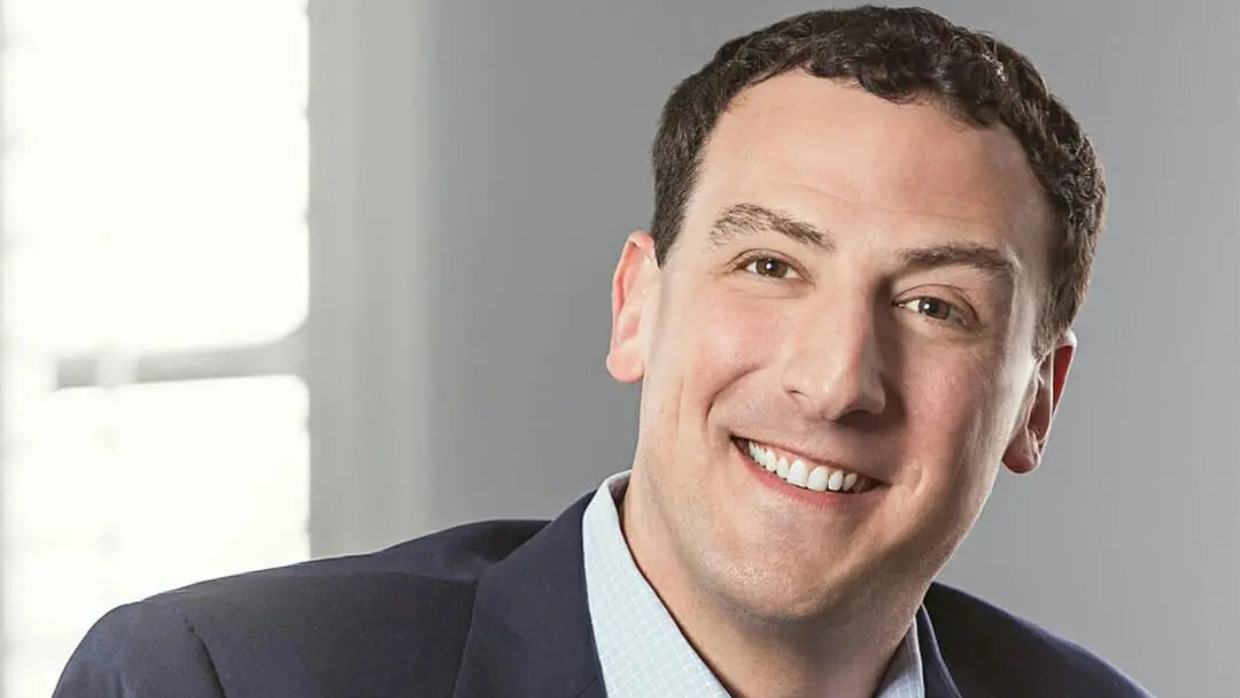

7 min read
Your greatest problem can become your greatest solution.
Isaac Lidsky is a Jewish entrepreneur, Harvard graduate, author, and child actor who played Weasel on Saved by the Bell: The New Class. Lidsky also started to lose his vision at the age of 13 and became fully blind at 24. Today he is married with four children, including triplets, and has built ODC Construction, a massively successful construction company in Orlando, Florida that he steers as the CEO.
Lidsky believes his blindness contributed to his company being so successful. He goes even further and says that his blindness was his greatest stroke of luck.
How could a perceived disability bring such success?
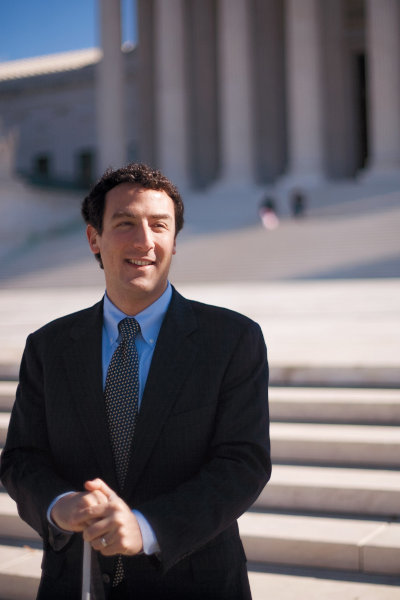 Lidsky graduated from Harvard and was a clerk at the US Supreme Court
Lidsky graduated from Harvard and was a clerk at the US Supreme Court
Here are five valuable lessons Lidsky learned from his lack of sight that you can apply to your life.
Lidsky says, “Let go of excuses, assumptions, and fears, and accept the awesome responsibility of being the creators of our own reality.”
Many people assume that unusually successful celebrities are overnight sensations. But in most cases, there were actually years of effort leading up to the opportunity that created his or her “break out” moment. People focus on the lucky break, not the long, hard years of practicing and perfecting their craft beforehand. They don’t have a lucky break; they created that lucky break.
“We create our success and build our future by tapping into the power of now. Work hard now, not later… The problem with, ‘There’s always tomorrow’ is that it’s a demonstrable lie… There is always right now, and nothing else.”
“When I was diagnosed with my blinding disease, I knew blindness would ruin my life. Blindness was a death sentence for my independence. It was the end of achievement for me… This was a fiction born of my fears, but I believed it. It was a lie, but it was my reality. If I had not confronted the reality of my fear, I would have lived it. I am certain of that.”
In Lidsky’s memoir, Eyes Wide Open, Lidsky challenges the human experience of sight. He learned that seeing could not always be believed.
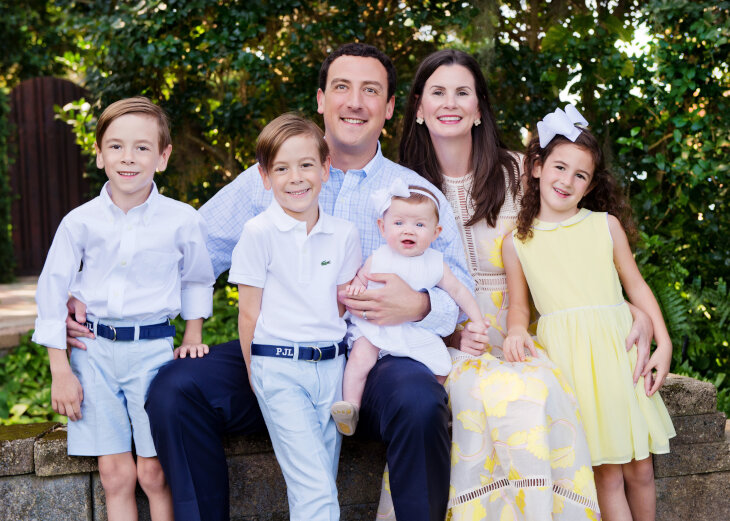
“As the photoreceptor cells of my retinas progressively deteriorated, I got all these bizarre visual effects along the way. And I literally saw that, far from some universal truth out there, sight is this complex, magical experience that the brain creates for us… it’s not only relying on data from your eyes. Your experience of sight is linked to all sorts of other things in your brain: conceptual understanding of the world, knowledge, memories, opinions, emotions—all these things.”
Lidsky learned that we don’t actually see with our eyes, we see with our brain. This shift in thinking enabled him to apply this understanding to other areas of his life, which helped him move forward and achieve feats most non-visually challenged people are unable to.
Lidsky’s wife announced one day that the Miami Marlins had called and wanted him to throw the opening pitch at their game.
His first thought was, I can’t throw a pitch. I’m blind. This is a horrible idea.
After some encouragement from his wife, and the fact that it would raise awareness and promote a cure for blindness, he reluctantly agreed. Then Isaac went with his wife to a local park and began to practice.
The first throw was ugly. It flew way over his wife’s head. She described the pitch to him and he tried again, and then again and again. Turns out, it doesn’t take that much time for a blind man to pitch a ball accurately and consistently—only about a half an hour. He practiced a few more times and on game day he struck the batter out.
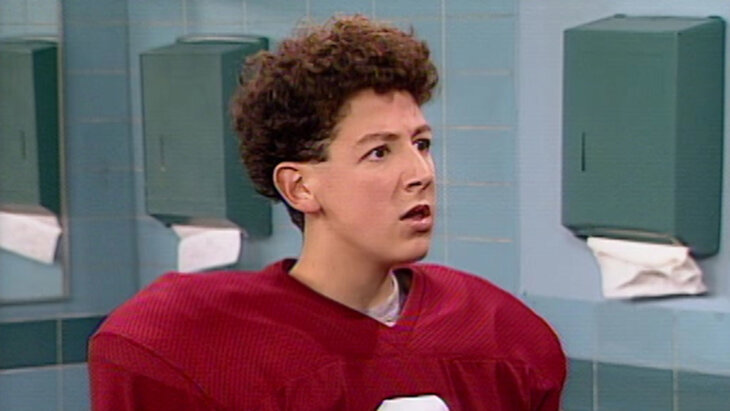 Lidsky in Saved by the Bell
Lidsky in Saved by the Bell
Lidsky can’t see any of the houses or buildings his company has built, but he dismissively states, “I have four beautiful children, and I have never seen their faces. It’s not productive to spend a ton of time thinking about that. If you are going to assess your lot in life or your circumstances, it’s only fair to look at the whole picture… And from that perspective, I am beyond lucky.”
People have certain preconceived notions that they mistakenly think are true. For Lidsky, it was assuming that his life was over after going blind. You need to re-examine them in order to grow.
Reality is a by-product of our brains. You create your own reality, the same way that the producers created the fictional reality of Saved by the Bell.
Similarly, you create your personal reality. If you constantly tell yourself I can’t, or it’s too hard, then it will be and you are bound for failure. Likewise, if you accentuate your favorable attributes and use positive self-talk such as, I got this! and I’m stronger than I realize! -- you can succeed.
“`The drama is smoke and mirrors, a diversion. What matters is you have accepted the reality that fear has created for you. You are a cooperative participant in the unfounded reality.”
When Lidsky became completely blind, he described this period as his darkest time. He felt his life was shattered and he never thought he would move on. But he did move on. And unbelievably, at times was caring for three babies alone while his wife recovered.
Initially, Lidsky’s meetings with executives at his company were a disaster. They would sit around the table and someone would propose an idea. Lidsky would respond, “Okay, who agrees?”
Total silence would follow.
Lidsky reminded them, “Guys, remember, I’m blind. You can’t just nod—tell me what you’re thinking.”
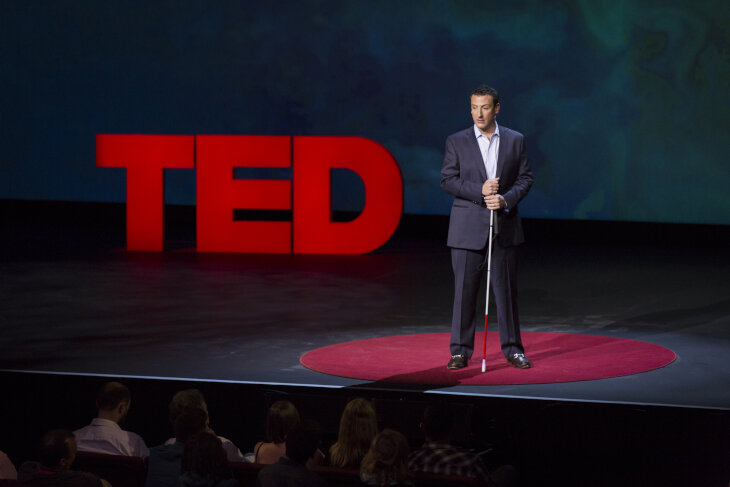
The group couldn’t rely on body language; they had to flesh out problems and ideas verbally, thereby clearing up small issues before they became major problems. The team developed such solid communication skills and created such a deep connection with one another that they became unstoppable.
Isaac utilizes audible tools to help him during his demanding workday. “When I use my computer I listen to documents, websites, and emails with…screen reading software. I read about 700 words per minute… The average person speaks about 22 percent of the rate my computer does… Sometimes I listen to more than one thing at a time, like two conversations in a restaurant, or a book and a newspaper. So, do I hear better because I’m blind? No… I don’t hear any better, I learned to listen better.”
Under the warped logic of fear, anything is better than the uncertain.
“Strength unexercised will atrophy. Inaction makes us weaker. With every betrayal of your potential, you diminish your potential.”
“Therein lies the greatest evil of that voice inside your head. The critic. Every time you listen to him, he gains credibility. He keeps you off the stage with the promise of bad reviews, and without practice you forget how to dance and lose the joy in it.”
Lidsky is mastering quieting the inner critic and is constantly pushing boundaries to achieve his best. His life bears testimony that if you keep striving and you will ultimately “see” success.
Learn more about Isaac Lidksy in his book, Eyes Wide Open.
